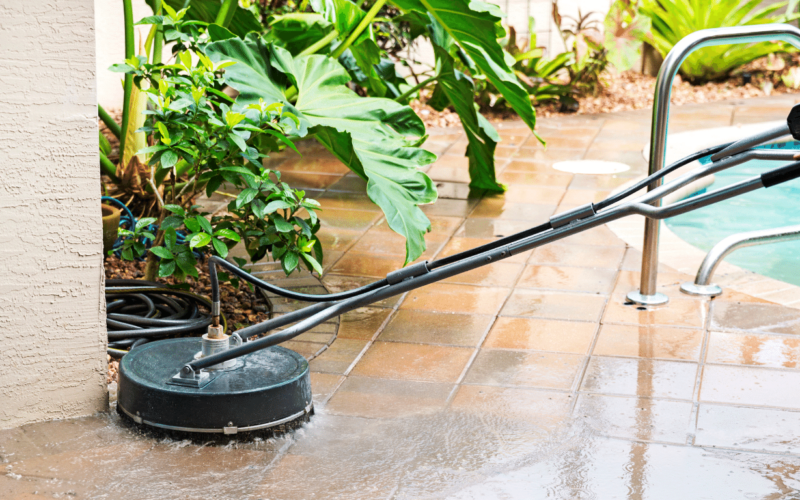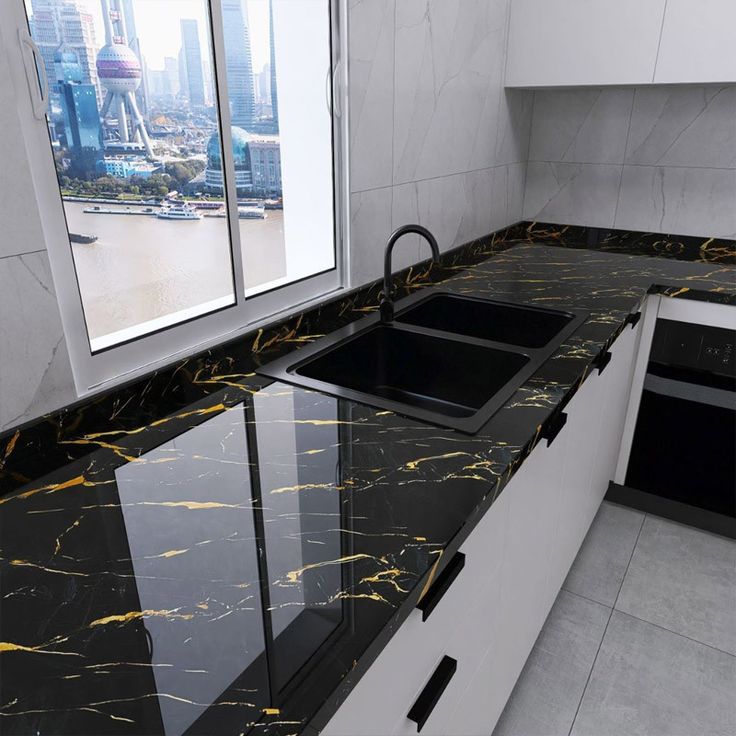Natural stone surfaces are a luxurious and timeless addition to any home or commercial space. Whether it’s marble, granite, limestone, or travertine, stone finishes require proper maintenance to retain their elegance and durability.
Neglecting routine care can lead to staining, etching, and irreversible damage, making professional restoration necessary.
For homeowners and businesses in Australia, particularly those seeking stone restoration Melbourne services, understanding the right cleaning methods and preventive measures is crucial.
This guide provides a comprehensive look at how to clean and maintain different types of natural stone finishes, ensuring their longevity and pristine appearance.
Key Takeaways
- Different natural stones have unique characteristics and require specific maintenance approaches.
- Using the wrong cleaning agents can damage the stones, causing permanent etching or discoloration.
- Sealing stone facades periodically protects them from moisture penetration and stains.
- Regular maintenance prevents costly repairs and extends the life of the stone.
- Professional restoration services can rejuvenate worn-out stone surfaces.
Understanding Natural Stone Surfaces
Natural stone finishes are widely used in homes and commercial spaces due to their beauty, durability, and unique characteristics. However, not all stones are the same. Each type has different levels of porosity, hardness, and resistance to damage, which influence how it should be maintained.
Understanding the specific stone type you have is crucial for selecting the appropriate cleaning products and maintenance routines to ensure its longevity and aesthetic appeal.
Common Types of Natural Stone
It comes in various types, each with distinct features that affect its use and care. Here are some of the most commonly used natural stones and their characteristics:
1. Marble
Marble is a classic and luxurious choice, often found in countertops, flooring, and bathrooms. It is known for its smooth, veined appearance and elegance.
However, marble is highly porous and prone to staining and etching from acidic substances like vinegar and citrus. Regular sealing is essential to protect it from damage, and it requires specialized cleaning products to maintain its finish.
2. Granite
Granite is one of the most durable stones, making it a popular choice for kitchen countertops and high-traffic areas. It is highly resistant to scratches and heat, making it ideal for busy households.
Though less porous than marble, granite still requires periodic sealing to prevent staining. Proper maintenance ensures that granite surfaces remain polished and resistant to damage for years.
3. Limestone
Limestone is a softer, more porous stone, which makes it more susceptible to scratches and stains. It is frequently used in flooring, wall cladding, and outdoor areas.
Due to its porous nature, limestone requires frequent sealing and gentle cleaning with pH-neutral solutions to prevent deterioration. Harsh cleaners and acidic substances should be avoided to maintain its natural beauty.
4. Travertine
Travertine is a form of limestone with a naturally pitted surface. These pits can be left open for a more rustic look or filled for a smoother finish. It is commonly used in flooring, backsplashes, and shower walls.
Travertine is highly porous and needs sealing to prevent water and stain absorption. Acidic substances can damage its surface, so care should be taken when cleaning.
5. Slate
Slate is a dense and non-porous stone, making it an excellent choice for flooring, outdoor spaces, and countertops. While it is highly durable, it can flake or chip over time.
Occasional sealing helps maintain its appearance and prevents moisture penetration. Slate’s natural texture provides a slip-resistant surface, making it ideal for wet areas.
Essential Cleaning and Maintenance Tips
Maintaining the beauty and longevity of your stone countertops requires a consistent and gentle cleaning routine. Follow these daily steps to keep your surfaces in top condition.
Dust and Wipe Regularly
Dirt and debris can accumulate on stone surfaces, leading to dullness and potential scratches. Use a microfiber cloth or a soft mop to remove dust and loose particles gently. Avoid using rough sponges or abrasive cleaning tools, as they can scratch and damage the surface over time.
Use pH-Neutral Cleaners
Stone facades are sensitive to harsh chemicals, and using the wrong cleaner can lead to damage. Opt for a mild, pH-neutral stone cleaner specifically designed for natural stone. Acidic or alkaline cleaners can weaken the stone, causing it to deteriorate or lose its shine over time.
Avoid Harsh Chemicals
Never use household cleaning agents such as bleach, ammonia, or vinegar on stone countertops. These chemicals can cause etching, discoloration, and a dull appearance. Instead, choose gentle cleaning solutions that are formulated for stone care to preserve its natural beauty.
Clean Spills Immediately
Spills can seep into the stone and cause staining if not addressed promptly. Use a blotting motion with a clean, dry cloth to absorb liquids instead of rubbing, which can spread the spill and make it worse. For stubborn stains, use a stone-safe stain remover to lift the discoloration without harming the surface.
Deep Cleaning and Stain Removal
Keeping surfaces clean and free from stubborn stains requires the right approach. Different types of stains need specific treatments to ensure effective removal without damaging the material.
Oil-Based Stains (Grease, Cooking Oil)
Oil-based stains can be tricky to remove, but a simple baking soda and water poultice can work wonders. Mix baking soda with a little water to form a paste, apply it directly to the stain, and cover it with plastic wrap.
Let it sit overnight to absorb the oil, then rinse thoroughly with warm water. For deeper stains, repeat the process as needed.
Organic Stains (Food, Wine, Coffee)
Organic stains from coffee, wine, or food spills can leave noticeable discoloration. A solution of hydrogen peroxide with a few drops of ammonia can help lift these stains.
Apply carefully to the affected area, allow it to sit for a few minutes, then wipe away with a damp cloth. Avoid excessive use, as ammonia can be harsh on delicate surfaces.
Water Stains and Etching
Water stains and light etching can dull the surface over time. To restore shine, use a marble polishing powder and buff gently with a soft cloth. For more severe etching, professional restoration may be required to fully restore the surface.
Sealing Natural Stone Surfaces
Proper sealing enhances the stone’s resistance to stains, moisture, and wear, ensuring that it remains in excellent condition for years.
Different types of stone, such as marble, granite, limestone, and travertine, have varying levels of porosity, which affects how often they need to be sealed.
High-traffic areas and frequently used surfaces, such as kitchen countertops and bathroom floors, may require more frequent sealing compared to decorative or low-traffic areas.
Testing for Sealing Needs
To determine whether your stone surface requires resealing, perform a simple water test:
- Pour a few drops of water onto the surface.
- Observe how quickly the water is absorbed.
- If the water is absorbed within minutes, it indicates that the seal has worn off, and resealing is necessary.
This test helps prevent stains and damage by ensuring that your stone countertops are adequately protected.
Applying Sealant
To properly seal your natural stone, follow these steps:
- Choose a high-quality stone sealer suitable for your specific stone type. Impregnating sealers are often recommended as they penetrate deep into the stone, providing long-lasting protection without altering its appearance.
- Clean the surface thoroughly to remove dirt, dust, and any existing stains before applying the sealer.
- Apply the sealer evenly using a soft cloth, brush, or applicator pad.
- Allow the sealer to penetrate for the recommended time, usually 15-30 minutes.
- Wipe off any excess sealer to prevent streaks or residue buildup.
- Let the surface dry completely before using it.
Marble Sealing
Marble is highly porous and requires regular sealing to maintain its shine and durability.
Professionals specializing in marble sealing in Melbourne recommend resealing every 6-12 months, depending on usage and exposure to moisture. Using an impregnating sealer specifically designed for marble will enhance its resistance to stains and etching while preserving its natural elegance.
Regular maintenance, including gentle cleaning with pH-neutral solutions, will further prolong the effectiveness of the sealant and keep marble surfaces looking pristine.
Preventing Damage and Wear
Maintaining the beauty and durability of your surfaces requires simple yet effective precautions. By taking the right steps, you can extend the lifespan of your stone countertops, flooring, and other surfaces while keeping them in top condition.
Use Coasters and Mats
Water rings and stains from glasses, bottles, and other liquids can leave unsightly marks on surfaces, especially natural stone. Always use coasters under beverages to prevent damage.
In high-traffic areas, place mats or rugs to minimize scratches and wear from constant foot traffic. These small additions can make a significant difference in protecting your surfaces from everyday damage.
Avoid Heavy Impact
Dropping heavy objects on stone finishes can result in cracks, chips, or even structural damage. Be cautious when handling kitchen appliances, cookware, or decorative items.
Use protective pads or trivets under heavy objects, and avoid placing excessive weight on delicate surfaces.
Properly Maintain Grout Lines
Grout lines can easily collect dirt, moisture, and mildew if not properly maintained. Regularly clean grout with a mild cleanser to prevent buildup.
Additionally, resealing grout periodically enhances its resistance to stains and moisture, keeping your tiled areas looking fresh and well-maintained.
Stone Repairs and Restoration
Over time, even well-maintained stone surfaces can develop issues. Restoration services help rejuvenate and repair damages. Common stone repairs in Melbourne are:
Crack and Chip Repairs
Cracks and chips in stone finishes can compromise their appearance and structural integrity. Experts use high-quality epoxy resin to fill cracks, ensuring a seamless blend with the stone. Small chips can often be buffed and polished to restore a smooth finish.
Stone Bench Repair
Stone benches in kitchens and bathrooms are particularly vulnerable to damage from heavy use, staining, and impact. Professional stone bench repair in Melbourne can remove chips, polish surfaces, and restore the stone to its original look.
Scratch Removal
Minor surface scratches can often be buffed out using a stone polishing compound. However, deeper scratches may require professional refinishing to achieve a smooth, even surface.
Honing and Polishing
Honing removes surface imperfections, leaving a soft matte finish, while polishing enhances the stone’s natural gloss, providing protection against wear and tear.
Final Thoughts
Maintaining stone finishes requires a combination of regular care, preventive measures, and professional restoration when needed. Many homeowners assume that stone is indestructible, but without proper maintenance, even the most durable materials can degrade over time.
Investing in high-quality sealants, using appropriate cleaning methods, and seeking expert repair services when necessary will ensure your stone facades remain beautiful and functional for decades. The true beauty of stone lies in its ability to age gracefully with proper care, making it a worthwhile investment for any home or business.
If you’re considering professional services, stone restoration Melbourne experts can help maintain and restore your stone to its best condition.
Frequently Asked Questions (FAQs)
How often should natural stone surfaces be sealed?
It depends on the stone type and usage. High-traffic areas should be sealed every 6-12 months, while less frequently used surfaces may only need sealing every few years.
Can I use vinegar to clean my stone countertops?
No, vinegar is acidic and can etch or dull natural stone surfaces. Always use a pH-neutral stone cleaner.
What should I do if my stone bench gets chipped?
Small chips can be repaired using epoxy resin or a stone filler. For major damage, professional stone bench repair Melbourne services are recommended.
How can I remove stains from marble surfaces?
Use a baking soda and water poultice for oil stains or hydrogen peroxide for organic stains. Avoid abrasive cleaners that can damage the surface.
Is professional stone restoration necessary?
Yes, for deep scratches, heavy etching, or significant damage, professional restoration services can bring back the stone’s original beauty and protect its longevity.
By following these expert tips and recommendations, you can ensure your stone countertops remain elegant and durable for years to come.






